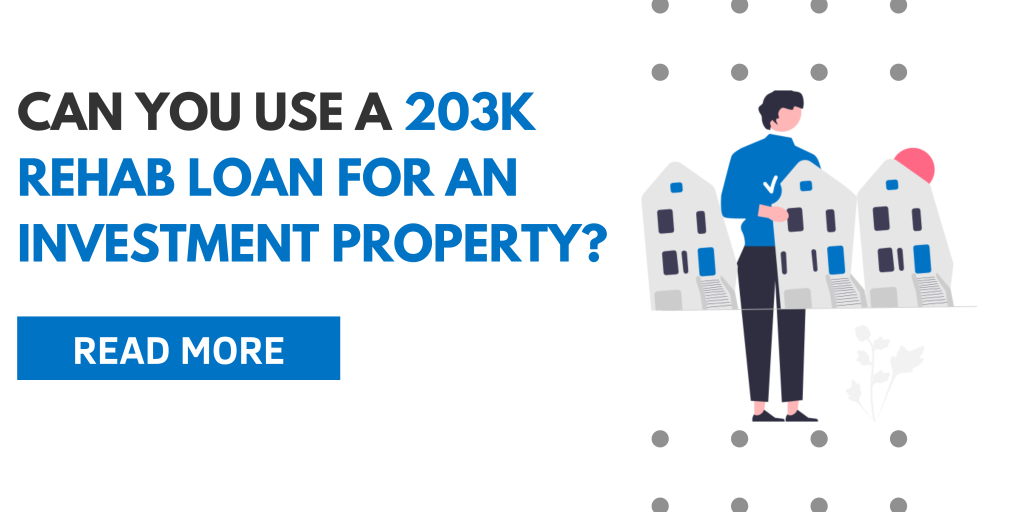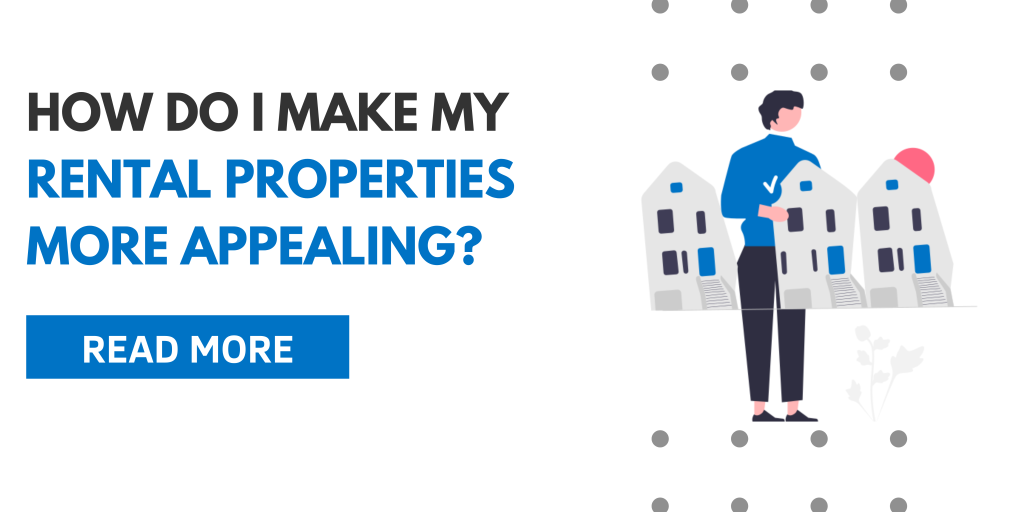A rehab mortgage can be a great way to get the money you need to fix up your home. By taking out a rehab mortgage, you can borrow money to fix up your home and repay the loan over time as you slowly increase the value of your property.
It can be a great way to get the money you need to make repairs or renovations without taking out a bank loan. However, there are also some drawbacks that you should consider before applying for a rehab mortgage.
In this blog post, we will discuss the pros and cons of getting a rehab mortgage so that you can make an informed decision about whether or not this type of loan is right for you!
What Is A Rehab Mortgage?
A rehab mortgage is a type of mortgage used to finance the purchase and rehabilitation of a property. Rehab mortgages are available to both owner-occupied and investment properties. The rehabilitation process can include repairs, renovations, and upgrades.
There are two main types of rehab mortgages: the FHA 203(k) loan and the Fannie Mae HomeStyle loan. Both of these loans have their specific guidelines and requirements.
The FHA 203(k) loan
It is a government-backed loan available to both owner-occupied and investment properties. This loan allows for the purchase of a property and the funding of repairs and renovations.
There are two distinct varieties of 203(k) loan programs available: Standard 203(k) and Limited 203(k). The Standard 203(k) loan is for more extensive repairs and renovations, while the Limited 203(k) loan is for less extensive work.

The Fannie Mae HomeStyle loan
It is a conventional loan available to both owner-occupied and investment properties. This loan also allows for the purchase of a property and the funding of repairs and renovations.
The significant difference between the HomeStyle loan and the 203(k) loan is that the HomeStyle loan does not have a maximum repair limit. As a result, borrowers can use this loan for more extensive repairs and renovations than with a 203(k) loan.
Other Loans Available:
Home Equity Loan In Rehab Mortgage
Home equity loans can be a great way to finance rehabbing your home. Home equity loans provide borrowers access to funds based on the equity they own in their homes.
This loan can accommodate owner-occupied and investment properties, albeit with specific stipulations on how the funds are deployed. For example, many lenders require that the funds from a home equity loan be used for repairs and renovations only.
Homestyle Renovation Loan
Homestyle Renovation loans are designed for owner-occupied properties that need repairs, renovations, or upgrades. This loan allows borrowers to finance the purchase of a property and the cost of repairs simultaneously.
The loan amount is based on the after-improvement value of the home, so borrowers can access more funds than they would with a regular mortgage.
How Can A Rehab Mortgage Help You Finance Repairs Or Renovations To Your Home?
A rehab mortgage can help you finance repairs or renovations to your home by providing you with the necessary funds. This type of mortgage is typically used for properties that need significant work to be habitable or safe.
Rehab mortgages can be used to finance a variety of repairs, including but not limited to: structural repairs, electrical work, plumbing work, HVAC repairs, and cosmetic upgrades.
One of the significant benefits of using a rehab loan to finance home repairs is that it can allow you to spread the cost of the repairs over a more extended period. As a result, it can make it more affordable for you to make the necessary repairs to your home.
Additionally, rehab mortgages often have lower interest rates than traditional ones, which can further help reduce the overall cost of the repairs. If you are considering using a rehab mortgage to finance home repairs or renovations, you must speak with a loan officer at your local bank or credit union.
They will be able to explain the details of this type of mortgage and help you determine if it is suitable for your situation.

What Are Some Pros And Cons Getting A Rehab Mortgage?
One of the most significant advantages of a rehab mortgage is that it can allow you to buy a property at a lower price than if you were to finance the purchase and renovation separately. It can be beneficial if you are working with a limited budget.
Additionally, since the property secures the loan, you may get better terms than an unsecured loan. However, some potential downsides to taking out a rehab mortgage are also.
The process can be complex, and you may need to be aware of hidden costs and the total fees in the closing costs. Additionally, suppose the property’s value increases less than you expect after the renovation is complete.
In that case, you could end up owing more on the loan than the property is worth. Before deciding whether or not a rehab mortgage is right for you, weighing the potential advantages and disadvantages are essential.
If you decide to go ahead with this type of loan, work with a reputable lender who can help guide you through the process.
Is A Rehab Mortgage Right For You?
A rehab mortgage is a loan to finance a property’s purchase and rehabilitation. This loan is typically used by investors or homebuyers looking to purchase a fixer-upper.
Rehab mortgages can finance the purchase price of single-family, multi-family, or commercial property. However, a few things to consider before applying for a rehab mortgage.
First, you will need a clear idea of what you plan to do with the property. Are you planning on fixing it up and flipping it? Or are you planning on living in it yourself? It will help you determine which rehab mortgage is right for you.
There are two types of rehab mortgages: investment and owner-occupied.
Investment Loans
These are for those who are planning on flipping their property. These loans typically have higher interest rates and shorter down payment terms.
Owner-occupied Loans
These are for those planning to live on the property themselves. These loans typically have lower interest rates and longer repayment terms.
Once you know which type of rehab mortgage is right for you, it’s time to start shopping around for lenders. Many lenders offer rehab mortgages, so comparing rates and terms is essential before deciding on one.
Before shopping for properties, getting pre-approved for a loan is also a good idea. This tool will give you a clearer picture of what kind of property fits your budget.
If you’re considering applying for a rehab mortgage, you should keep a few things in mind.
- First, make sure you have a clear plan for what you want to do with the property.
- Second, compare rates and terms from multiple lenders before choosing one.
- And finally, get pre-approved for your loan before shopping for properties.
How To Decide If A Rehab Mortgage Is Right For You
When considering if a rehab mortgage is right for you, there are a few key things to keep in mind. First, what is your overall financial situation? Do you have the ability to take on additional debt to finance the renovation for a major home improvement project? Are you comfortable with the risks involved in any investment?
A rehab mortgage may be a good option if you are confident in your financial situation and comfortable with taking on some additional risk. There are a few different rehab mortgages available, so it is essential to research and find the one that best suits your needs.
When taking out a rehab mortgage, one important thing to remember is the length of time you plan on living on the property. For example, if you are only planning on living there for a few years, it may not be worth taking out a 15 or 30-year mortgage.
You will also need to factor in the interest rate and monthly mortgage payment when considering if a rehab mortgage is right for you. Ultimately, deciding to take out a rehab mortgage should be based on your financial situation and goals.
A rehab mortgage may be a good option if you are confident in making the monthly mortgage payments and comfortable with the risks involved.
Generally
A rehab mortgage can be an excellent option for purchasing and renovating a fixer-upper. However, weighing the potential advantages and disadvantages before committing to this type of loan is essential.
Weighing the potential advantages and disadvantages is essential. If you decide to go ahead with this type of loan, work with a reputable and approved lender and compare rates, terms, and payment plans before signing on the dotted line.
It’s also important to be realistic about your long-term plans for the property before taking out rehab loans. Knowing this information upfront will help you pick the right loan program and make sure it is the right decision for your financial situation.
FAQs
Does private mortgage insurance (PMI) apply to rehab mortgages?
That depends on the lender and the loan program. Some lenders require PMI, while others do not. It’s best to speak with a qualified lender for more details about PMI requirements in your area.
What is a mortgage insurance premium (MIP) required for rehab mortgages?
The mortgage insurance premium (MIP) requirement varies depending on the loan program and lender. Generally, FHA-insured loans have a MIP of 1.75%, while Conventional loans may have a MIP rate of up to 2%.
Speak with a qualified lender for more details about the MIP requirements for your area.
Are payment and credit scores needed for rehab mortgages?
Most lenders require a minimum payment and credit score to qualify for a loan, but the requirements vary by lender. Therefore, it’s best to speak with a qualified lender in your area to get more details about their conditions.
What is the role of the federal national mortgage association in rehab mortgages?
The Federal National Mortgage Association (Fannie Mae) assists lenders in providing rehab loans to qualified borrowers. In addition, Fannie Mae helps create loan programs that make it easier for borrowers to purchase and renovate a property, such as the HomeStyle Renovation loan program.
Are there any FHA loan limits available in rehab mortgages?
Yes, there are limits for FHA loan programs. Generally, the limit is 96.5% of the purchase price plus renovation costs or 110% of the appraised value.
It’s best to speak with a qualified lender in your area for more details about FHA loan limits.



